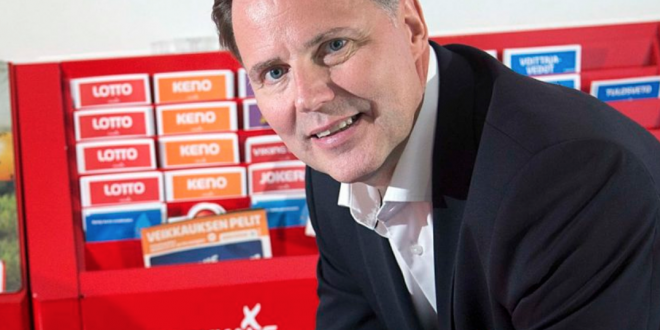The leadership of Veikkaus, Finland’s gambling monopoly, has questioned the viability of the nation’s existing gambling framework and its engagement with consumers.
H1 results saw Veikkaus continue to register a year-on-year revenue decline to €515m, results reflecting a retail and online slump for the Finnish monopoly.
Of concern to CEO Olli Sarekoski, Veikkaus recorded a 5% drop in its slice of the country’s entire digital market during H1 trading – an indicator that Finns are choosing to play ‘outside of monopoly boundaries’.
“Finland needs to start thinking about bringing all gambling under the same regulation,” Sarekoski’s statement on the monopoly’s interim trading update read.
Corporate leadership warned that “it operates in the current competitive digital market under different conditions than its competitors”.
Finland’s online gambling marketplace was estimated to have generated a GGR of €520m during H1 2022, with Veikkaus registered €260m, results “reflecting an upcoming loss of 50% of the online market.”
In a separate statement made to broadcaster Yleisradio, Veikkaus Deputy CEO Velipekka Nummikoski underlined that the market required correcting.
“In Finland, we formally have an exclusive rights system, but if we look at digital gaming, Veikkaus’ market share is only half. You can already ask if we really have an exclusive system anymore,” Nummikoski stated.
“Our competitors do not operate under Finnish regulations and their license would change. Then everyone would work with the same rules of the game.”
2021 saw the Finnish government amend the Lotteries Act, with new policies focused on curbing “the negative impacts of gambling”.
Protective measures saw the Finnish government introduce new banking protocols “to block payment transactions to prevent gambling outside of the monopoly system”.
Separate assessments made by independent policy agencies have advised Finland’s government to drop the monopoly regime – a recommendation rejected by Finland’s Social Democrat Party.
Since 2020, regulatory focus has shifted on improving Veikkaus corporate conduct by promoting safer gambling and reducing and restricting the size of the monopoly’s gambling machines, allowed in leisure venues.
Nummikoski has urged the Finnish government to follow Sweden by implementing a new licensing system to tax foreign operators.
“Channelization has reached 90% there, which was the goal of the system.” Nummikoski told Yleisradio.
“And that is the most significant measure of whether the system has been successful or not. It is not worth creating such a license system, which is not capable of channeling gaming into itself. The regulation must be drawn up to its level.”









